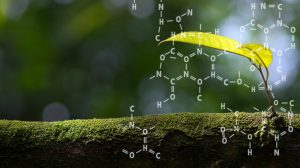Definition
noun, plural: hemolysins
An agent or substance that causes hemolysis, i.e. the lysis of red blood cells resulting in the release of hemoglobin
Supplement
A hemolysin refers to any agent or substance that promotes hemolysis. It may be an exotoxin protein produced by bacteria. It may also be an antibody in which the resulting immune action involves hemolysis. Other possible hemolysins are other immunologic factors, toxins, and enzymes. A hemolysin is capable of causing lysis of the red blood cells resulting in the release of hemoglobin.
A hemolysin produced by bacteria (e.g. Staphyloccus and Streptococcus spp.) is exemplified by streptolysin. Streptococci producing exotoxic streptolysins may be grouped as alpha– or beta-. The alpha-hemolytic streptococci produce hemolysins that can cause incomplete hemolysis whereas the beta-type causes complete hemolysis of red blood cells.
Hemolysis of red blood cells can also be mediated by antibodies. Two possible mechanisms are described: (1) intravascular destruction of erythrocytes by complement lysis and (2) extravascular destruction of erythrocytes by immune cells that recognize antibody and complement bound to the erythrocyte.1
Autoimmune hemolytic anemia is an example of a rare case wherein the action of the antibodies is directed towards own red blood cells. The condition is, thus, characterized by anemia (where there is an insufficient number of erythrocytes to carry oxygen in the bloodstream).
Word origin: Greek haǐma (blood) + lysin
Variant(s):
- haemolysin (British)
Synonym(s):
See also:
- hemolysis
- Streptolysin
Reference(s):
1 Flegel, W. A. (2015). Pathogenesis and mechanisms of antibody-mediated hemolysis. Transfusion, 55(0), S47–S58. http://doi.org/10.1111/trf.13147







